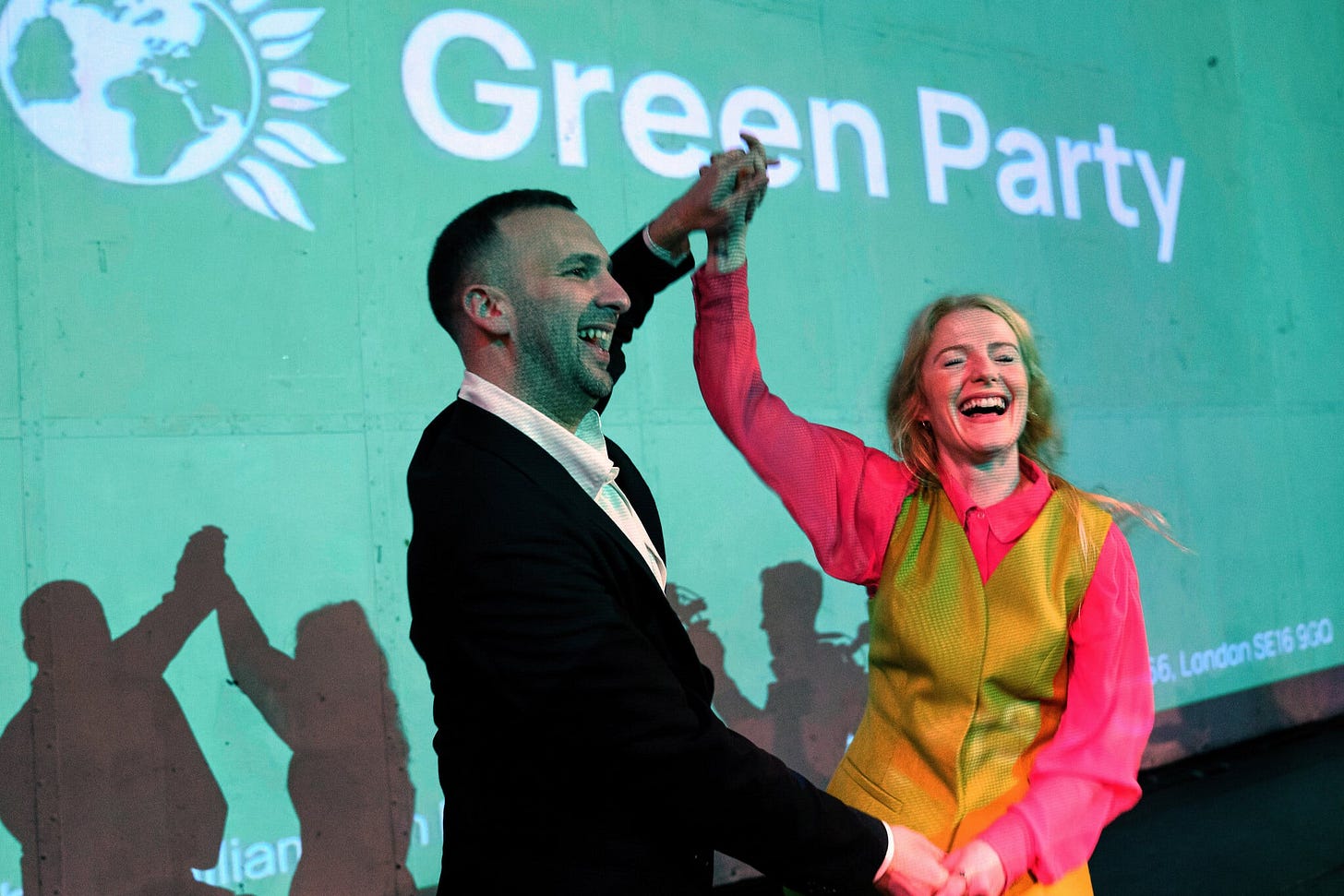I use Publer to post identical content across Threads, Mastodon, and Bluesky. Same words, same time, same bloke. It’s a massive time-saver, and means I can reach people wherever they happen to hang out online without having to faff about copying and pasting between apps.
I wasn’t running some grand social media experiment. I was just having a moan about Windows updates like any reasonable person would. But the results were so stark they opened my eyes to exactly what these platforms reward - and it’s not what you might think.
The Numbers
Here’s what I posted:
Six months since I booted my Windows “gaming” PC.
One game I want to play.
GPU drivers.
Windows updates.
27GB Steam update.
Three hours later, I’ve played zero games.
Same post, three platforms, posted simultaneously at about 6pm. Here’s what happened:
| Platform |
Followers |
Likes/Favourites |
Comments/Replies |
Reshares/Boosts/Reposts |
| Threads |
330 |
927 |
404 |
3 |
| Mastodon |
5,300 |
19 |
4 |
3 |
| Bluesky |
1,700 |
3 |
0 |
1 |
Let me spell that out clearly: On Threads, where I have my smallest following by a country mile, the post got 49 times more engagement than on Mastodon, where I have 16 times more followers.
Mental.
What Threads Actually Rewards
Here’s the thing - most of my Threads posts get precisely sod all engagement. Zero. Zilch. Nowt. I’ll share something I’m building, a technical observation, community updates, links to blog posts - nothing.
Complain about Windows? 927 likes.
A few weeks back I had a moan about a poorly-worded GitLab email. The message said “You’re receiving this email because of your account on gitlab.gnome.org” which, as I pointed out, isn’t actually a reason for sending an email - it’s just stating a fact about my account existing. Fair criticism, I thought.
Got absolutely slated in the replies. Told I was clueless about technology, that I was being unreasonable, the works. 22 hearts, 11 replies, mostly having a go.
Pattern emerging?
Threads has worked out what drives engagement on their platform: conflict.
My Windows post hit every algorithmic sweet spot:
- Complaint/frustration ✓
- Platform wars potential (Windows vs. Linux) ✓
- Invites correction ✓
- Triggers strong opinions ✓
- Generates replies (even hostile ones) ✓
The algorithm doesn’t care if those replies are helpful, thoughtful, or complete bollocks. It just cares that people are engaging.
The Response Patterns
404 comments. Bloody hell. Now, I’m fully aware that posting a complaint online is basically asking for it. Some of these responses were genuinely trying to help, some were having a laugh, some were probably winding me up for sport (fair play), and some seemed genuinely annoyed that I’d dared complain about Windows. They fell into some pretty clear categories:
The “You’re Doing It Wrong” Brigade
“That’s neglect….. you’re a terrible PC dad.”
“clearly a skill issue”
“Sounds like this is 100% user-error”
“You’re just self reporting your incompetence”
My personal favourite: “Your poor parents, bro. As a father of five I can’t imagine seeing my adult child struggle with basic critical thinking skills.”
Look, I’ll admit this last one made me laugh. The mental image of my 84-year-old mum receiving a concerned phone call about my inability to operate a computer is genuinely brilliant. I’m choosing to believe this was someone having a laugh rather than genuine concern for my elderly parents’ wellbeing.
The Well-Meaning (But Mistaken) Helper Squad
Dozens of people telling me to use Linux. Fair enough on the surface, except the game won’t run on Linux. That’s literally why I have a Windows PC. But they didn’t ask what game - they just assumed I was either being thick or hadn’t considered Linux. Which is quite funny given I co-host a Linux podcast and spent years advocating for Ubuntu professionally.
Multiple suggestions to “just enable auto-updates” - missing the point that I can’t predict when I’ll want to play, so auto-updates wouldn’t have solved this particular Friday evening situation.
“Play while it downloads” - it’s multiplayer, the game literally requires the update to be installed before you can launch it. But I appreciate the optimism.
A surprising number recommending GeForce Now or other streaming services. Points for creativity, even if it wasn’t what I was after.
The Actually Helpful Responses
Buried among everything else, there were some genuinely lovely responses:
“This is my experience as a new parent. I finally get a few hours to do something fun for the first time in months and BAM 3 hours of updates, no matter what I choose to play.”
“People will blame you about this, but I’ve made the same complaints. The problem is not the amount of upgrades but how blocking and synchronous they are. They don’t know there are better user experiences, they are just used to poorly designed systems.”
These folks got it. The issue isn’t that updates exist - it’s that the entire experience is designed to block you from doing what you actually want to do. They understood it was about UX frustration, not technical incompetence.
The Question Almost Nobody Asked
What game?
Out of 404 comments, almost nobody asked which game I was trying to play. They just assumed I was being thick, or that I should obviously be using Linux, or that I was exaggerating for comic effect (I wasn’t - it genuinely took three hours).
The game is PUBG. Kernel-level anti-cheat. Won’t work on Linux, won’t work on SteamOS, won’t work in a VM, won’t work on anything except native Windows. Full stop. It’s the sole reason I keep a Windows PC around.
What Nobody Knew (And Nobody Asked)
The PC sat unused for six months because we offered housing to someone experiencing homelessness. My gaming room became their room. They’ve since moved on, and it took a while to get everything set back up properly.
Not anyone’s business, really. But it’s interesting what people will assume when you don’t provide full context. I’m not blaming anyone for not knowing this - how could they? But it does highlight how social media strips away context and leaves room for people to fill in their own narratives.
For the record: I’m a Developer Advocate at an AI-native dev company. Long-time Ubuntu community member. I co-host Linux Matters podcast. I spent years working at Canonical in various roles including Developer Advocate. I’ve advocated for Linux professionally and personally for over two decades.
But Threads doesn’t know that. Threads doesn’t care. Threads just knows: complaint → engagement → boost the hell out of it.
Let’s look at what happened on the other platforms.
Mastodon’s 4 Replies:
“that’s why ppl kick out win and start using linux but you already know that I guess 😂”
“and I used to complain about the loading bars on the speccy taking ages before I could play dizzy”
This second one is absolutely brilliant - nostalgic Spectrum reference, understands the frustration of waiting ages to do something you wanted to do right now, and doesn’t assume I’m a numpty. Just lovely, that.
“RIP Windows”
“And you know what the next stage is going to be. Yesss Finaly! Let the games begin!!! Oh. Shader pre-cashing .. I might as well go to bed :D”
Light, friendly, empathetic. Nobody assumed I was completely incompetent. Nobody got angry at me for daring to complain. Just people who understood the frustration and shared their own experiences.
Bluesky:
One repost. No commentary.
The community’s still finding its feet over there, I reckon. Or maybe they just didn’t think it was worth engaging with. Either way, pretty quiet.
Threads:
Mixed bag. Some genuinely thoughtful responses, some people winding me up (fair enough), some people who seemed genuinely annoyed that I’d complained, and quite a few who wanted to help but made assumptions about my technical knowledge.
But here’s the key thing: the algorithm boosted it all the same, because engagement is engagement. Doesn’t matter if you’re being helpful, hostile, or having a laugh - it all counts the same to the algorithm.
What This Actually Reveals
Different platforms, different algorithms, different incentives:
Mastodon: Chronological timeline. No algorithm boosting controversial content. Your followers see your posts in order. Engagement is modest but genuine. People who follow you chose to follow you, and they see what you post. Revolutionary concept, that.
Bluesky: Algorithm exists but doesn’t seem to heavily favour conflict. Still relatively quiet, community still finding its shape. Might just be that my particular crowd hasn’t really migrated over there yet.
Threads: Meta’s algorithm surfaces content that generates interaction - any interaction. Arguments are engagement gold. The algorithm doesn’t distinguish between “this post made people think” and “this post wound people up” - it just sees numbers going up.
I wasn’t trying to game the system. I was genuinely frustrated about waiting three hours to play a bloody video game on a Friday evening. But Threads saw a post about Windows, updates, and gaming, thought “this will make people argue” and ran with it.
Got notifications at 100 views, 500 views, 1000 views. The algorithm was having a whale of a time.
The Irony
I’d rather have 19 favorites and 4 friendly replies on Mastodon than 927 likes on Threads if a chunk of those likes come packaged with people assuming I’m incompetent or having a go at me (even if some of them are just having a laugh).
High engagement ≠ good engagement.
The algorithm doesn’t care if people are being helpful or hostile. It cares that they’re engaging. That’s the metric. That’s what gets boosted. That’s what drives the platform.
And look, I get it - I posted a complaint online. That’s basically an invitation for people to respond however they like. Some will help, some will take the piss, some will genuinely think you’re being thick. That’s the internet. I’m not precious about it.
But it’s fascinating that this type of content gets algorithmically boosted so much more than anything else I post. That’s the bit worth paying attention to.
What I’ve Learned
Threads rewards rage bait. Complain about popular things - Windows, GitLab emails, whatever - and you’ll get engagement. Won’t necessarily be good engagement, mind. You’ll get helpful people, people winding you up, people having a laugh, and people who are genuinely annoyed you dared complain.
Platform incentives shape behaviour. On Threads, I’m learning (reluctantly) that controversy performs. On Mastodon, thoughtful content finds thoughtful people - just fewer of them. The numbers tell you what each platform values.
Context collapse is real. Without context, a post becomes whatever people project onto it. Very few people assume good intent. Most jump straight to filling in the gaps with their own assumptions. That’s not necessarily malicious - it’s just how human brains work when presented with incomplete information.
The network effect paradox: I have 16x more followers on Mastodon, but get better reach on Threads with 330 followers - because one platform actively surfaces controversial content to people who don’t follow me.
I’m still posting to all three platforms. But I know now what each platform rewards. I know what kind of engagement I’ll get where.
Choose your platform based on what kind of engagement you want - not just how much of it.
Did I eventually get to play PUBG?
Yeah, hours later, as advertised. I’m terrible at it, but glad I managed to squeeze a quick round in.
The internet’s reaction to my mild frustration about waiting to play it? That turned out to be the more interesting story.

